How Can I Better Manage My Anxiety?
An amazing 19.1%, or 40 million, American adults battle with anxiety each year. In fact, an anxiety diagnosis is so common, anxiety disorders are now the most common mental health concern in the United States. As of March 2020 (when the pandemic began), 9.7 million Americans were prescribed an anti-anxiety medication. As you can see, anxiety is a common mental health concern to struggle with!
If you have anxiety, what are your options? There are several different approaches you can take to anxiety treatment. First, anxiety that is manageable may be handled with holistic methods at home. Second, anxiety that has elevated beyond your known coping strategies may be brought to a licensed psychotherapist. Third, anxiety that is unmanageable even through holistic and therapeutic methods may benefit from medication management. Anxiety does not necessarily follow these “levels”, either; if you and a psychiatrist discuss medication management before trying anything else, that’s just as well – you have autonomy to make your own treatment decisions!
No matter your choice, we’d love to give you an overview of three different ways you can manage your anxiety: from home, from the therapy office, and from a psychiatrist’s office.
From Home
There are several things you can do from home without direct guidance from a therapist to improve your anxiety symptoms! First, you can adjust your diet and exercise routines. Caffeine and alcohol may increase anxiety; try cutting these out to see what difference it makes for you. Joyful movement, like a mindful walk, can help us complete the stress cycle and reduce anxiety symptoms.
On top of diet and exercise, you can use some techniques to increase your mindfulness skills. Journaling is one way to be more in touch with what is making you anxious. You may elect to connect with your body through gentle exercise, like yoga. Finally, meditation has been shown to decrease anxiety in many individuals; try it out, it may be for you!
From the Therapy Office
If you elect to go beyond holistic home remedies, the psychotherapy office may be a good place to start. Mental health clinicians can use a variety of approaches to help ease anxiety.
First, Cognitive Behavioral Therapy, or CBT, is one of the most used and most effective approaches for anxiety. This process helps you to stop your thoughts and challenge them. Through CBT, you can learn to address your anxious thoughts and correct them if you’re catastrophizing or otherwise going through undue stress.
Dialectical Behavior Therapy, or DBT, is a second approach used for anxiety. This approach helps individuals learn emotional regulation skills, increases mindfulness, and helps identify triggers using diary cards or chaining (a process which starts at your moment of concern, like an anxiety attack, and backtracks to find the source of it).
Finally, Exposure Therapy may be an appropriate approach. In this form of therapy, the individual makes a pyramid of events, from least stressful to most stressful. The clinician and client then work through gradual exposure to the least stressful event and pairs this exposure with relaxation techniques. Eventually, the client can work upward as each stressful event feels manageable.
From the Psychiatrist’s Office
If you feel medication management is the best way to go for you, you’ll need to visit a psychiatrist. A psychiatrist is able to give you an assessment and provide you with medication appropriate for your diagnosis. A psychiatrist will also work with you to monitor how the medication impacts your anxiety level; you can expect frequent appointments, such as a session every three months, to make sure your medication dosage doesn’t need to be adjusted.
We hope this blog helps you understand your options for anxiety management! At Straight Up Treatment, we specialize in anxiety and OCD – we can help! We offer individual counseling where you and your therapist can assess the best method to manage your anxiety. Reach out today to meet with a counselor who can help you thrive. We look forward to hearing from you!





